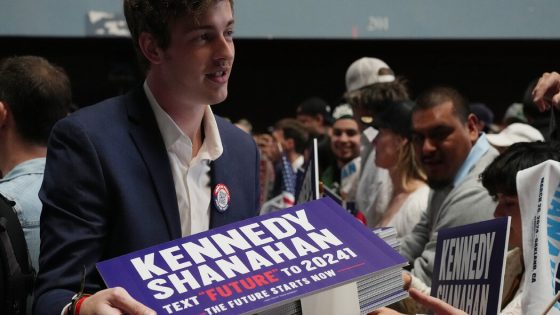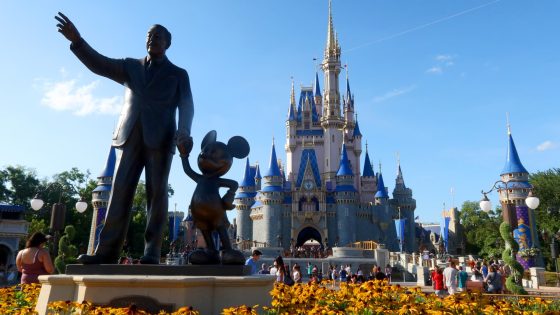In January, when Doug Dern, the state chairman of the Natural Law Party of Michigan, got an email from a top strategist for Robert F. Kennedy Jr.’s presidential campaign, he sensed it could be a star turn for his tiny political group.
For 22 years, Mr. Dern, a bankruptcy lawyer with a small practice outside Detroit, has almost single-handedly kept the Natural Law Party on Michigan’s ballot. Each cycle, the party runs a handful of candidates in obscure state races to meet Michigan’s minimum polling requirements for minor parties.
“Keep that ballot access,” Mr. Dern, 62, said in an interview on Friday. “Because someday, a candidate is going to come along who’s going to be perfect for it. Someday, the third parties are going to be hot.”
That day may have come.
In gaining access to the ballot in Michigan, a critical swing state in the 2024 election, Mr. Kennedy has injected new uncertainty into what promises to be one of the most closely contested presidential races in history. And he did it without having to gather a single signature, avoiding a costly and arduous organizing effort, not to mention the possibility of having to fight court challenges to those signatures.
Mr. Kennedy was formally nominated at a brief convention held Wednesday morning in Mr. Dern’s law office. The only two attendees were Mr. Dern and the party’s secretary.
Stefanie Spear, a spokeswoman for the Kennedy campaign, confirmed the timeline of the campaign’s outreach and said simply that Mr. Kennedy and his running mate, Nicole Shanahan, had been “duly nominated by the Natural Law Party.”
Third parties have drawn increasing attention in recent elections — and arguably have swung some of them — by allowing voters to express discontent with major-party candidates. Mr. Kennedy is counting on a particularly strong showing in this election as polls show voters are highly dissatisfied with their options.
The Natural Law Party was founded in 1992 on a platform that included promotion of transcendental meditation, responsible gun use, flat taxes and organic farming. But it has dwindled over the years. Heading into the 2024 election, Michigan’s was its only state chapter.
These days, the party is more like an empty vessel for independent candidates, which Mr. Dern sees as a virtue in itself — a commitment to giving voters more choice. Every presidential cycle, independent candidates reach out to Mr. Dern, seeking the party’s nomination in Michigan. In 2008, the spot went to Ralph Nader, who had been seen as a spoiler in the 2000 election.
Mr. Dern, who has worked as a stage magician and also has a law practice for drunken-driving arrests, has made it his personal mission to keep the party active. “I’ve just been plugging away, year after year, making sure there are people on the ballot,” he said.
Natural Law candidates, who have frequently included Mr. Dern himself, have run for secretary of state, seats on Michigan’s Supreme Court, lieutenant governor, state university boards and others. Their mission is simple: Secure enough votes in the general election to keep the party on the ballot for the next cycle.
In Michigan, minor parties can retain their ballot access only if their top vote-getting candidate — for any statewide office on the ballot — receives a total vote equal to at least 1 percent of the total votes cast for the winner of the last secretary of state race.
In January, Cornel West’s independent presidential campaign reached out to Mr. Dern, he said. Under normal circumstances, Mr. Dern said, Mr. West would have been a great candidate for his party.
But the very next day, a better offer arrived in the form of an email from Nicholas Brana, a campaign consultant for Mr. Kennedy — whose ideals, Mr. Dern noted, align with much of the Natural Law Party’s original platform, including its emphasis on health. Mr. Kennedy, an environmental lawyer and a scion of a storied political family, is also a leading figure in the anti-vaccine movement and a critic of the Covid pandemic response.
The party affiliation is crucial for Mr. Kennedy’s campaign. Independent candidates without any party backing face a daunting path to getting on the ballot in Michigan, requiring between 12,000 and 60,000 signatures, including 100 signatures from each of at least half of the state’s congressional districts.
Candidates can skip all that if they are nominated by a minor party with ballot access. The party just has to hold a convention, nominate a candidate and submit a certificate to the Michigan Department of State. There are a few other legal niceties — for example, presidential candidates need to submit a list of electors — but that is basically it, Mr. Dern said.
So, on Wednesday morning, Mr. Dern said, he and Kathleen Oakford, the party’s secretary, held their convention in a low-slung office building in Hartland, Mich.
The proceedings were brief.
“She came in, I took my gavel and tapped it on my desk.” He called the state convention to order, they signed the proposed certificate of nomination, he closed the meeting, “And I took off for Lansing and filed it.”
Since Mr. Kennedy’s campaign announced his place on the ballot, Mr. Dern has fielded calls and emails from other states and candidates. A resurgence of interest in the Natural Law Party is underway, Mr. Dern said.
“There’s even talk of reviving the national chapter,” he said.
Source Agencies




